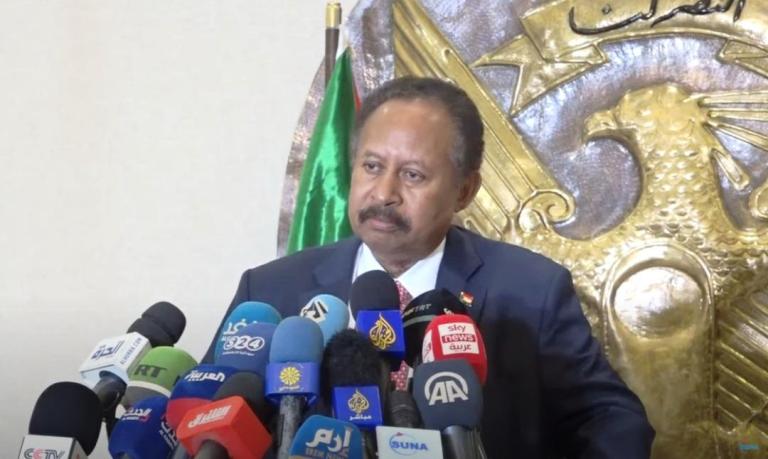SRF groups voice support to recent austerity measures in Sudan

June 13, 2021 (KHARTOUM) – The Sudanese Revolutionary Front (SRF) groups voiced their support for the government’s decision to liberalize fuel prices and stressed the need to back the transitional government reforms.
The groups, signatory of the Juba Peace Agreement, on Sunday met with Prime Minister Abdallah Hamdok, the economic sector ministers, and the interior minister to discuss the recent economic measures that caused mass protests.
In a statement released after the meeting, the cabinet said that Hamdok told the participants that the aim of the recent economic measures is to remove structural distortions in the national economy.
“The parties to the peace process described the lifting of subsidies as a sound procedure, crucial to restructure the national economy and to fully integrate Sudan into the international economic and financial institutions,” added the statement.
The signatory groups stressed that these economic measures are necessary to attract foreign investment into the country.
“The Sudanese people must know that (these measures are) an important step of economic reforms,” said Minni Minnawi, Governor of the Darfur region, and SLM leader according to the statement.
Minnawi added that the meeting discussed the need for dialogue with the Forces for Freedom and Change (FFC) and the SRF groups that support the government.
In a statement to Sudan Tribune on Sunday, an FFC member of the leadership council, Mohid Seddiq, stated that “Hamdok did not inform the cabinet ministers nor the ruling alliance about the recent economic measures.
Seddiq also questioned the accuracy of the government’s announced figures about the implementation of the family support programme.
During a meeting with the FFC on Saturday, the ministers of finance and communications said that more than 700,000 registered families would benefit from the cash transfer programme.
For his part, Osama Saeed, the SRF spokesman said they agreed on the need to implement economic measures designed to mitigate the increases of prices following the harsh economic reforms.
Saeed further stressed that the political parties and former armed movements must provide the government with the required political support to achieve the revolution’s slogans of freedom, peace, and justice.
FFC divided
Seddiq, in his statements to the Sudan Tribune, admitted that the FFC groups are divided over the recent economic measures, adding some are against it while others support it.
Another member of the FFC leadership council representing the Nasserite Democratic Unionist Party Jamal Idris Alkanin rejected the government decision to increase fuel prices.
However, he warned in statements to Al-Jareeda newspaper that the current protests staged by the Communist Party and a faction of the Sudanese Professional Association could lead to chaos in the country and be instrumentalized by the enemies of the revolution.
The acting leader of the National Umma Party Fadlallah Burma voiced his support for the liberalization of fuel prices.
Burma further called on the government to do everything in its power to alleviate the suffering of the citizen and unify the national ranks.
(ST)
